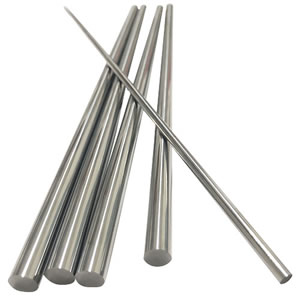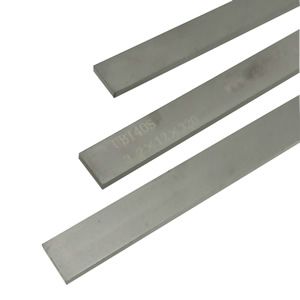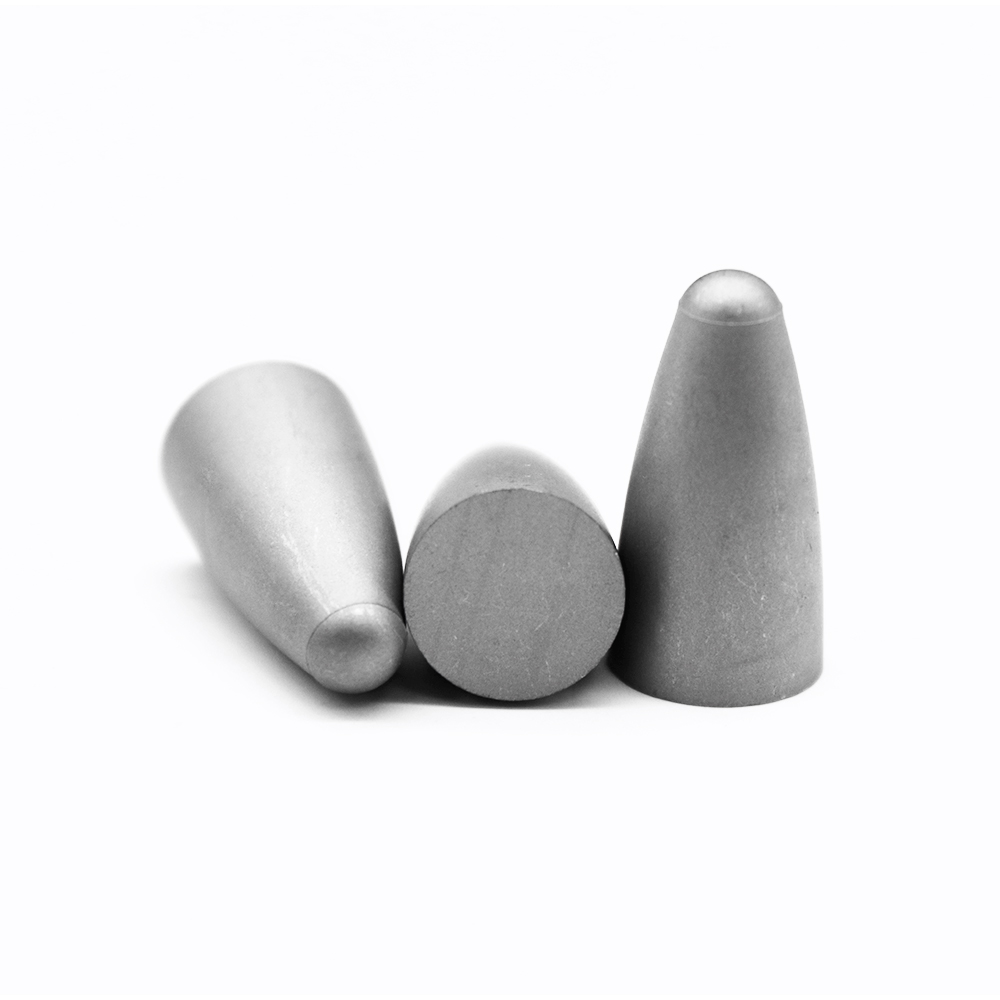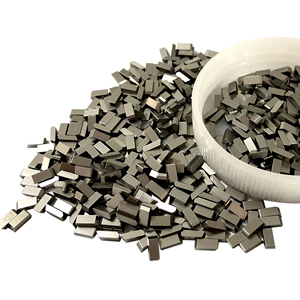Nibihe bya Carbide Ibice byo Gukata Impapuro
Ni ubuhe bwoko bwa Carbide yo Gukata Impapuro no Gukata Imyenda?
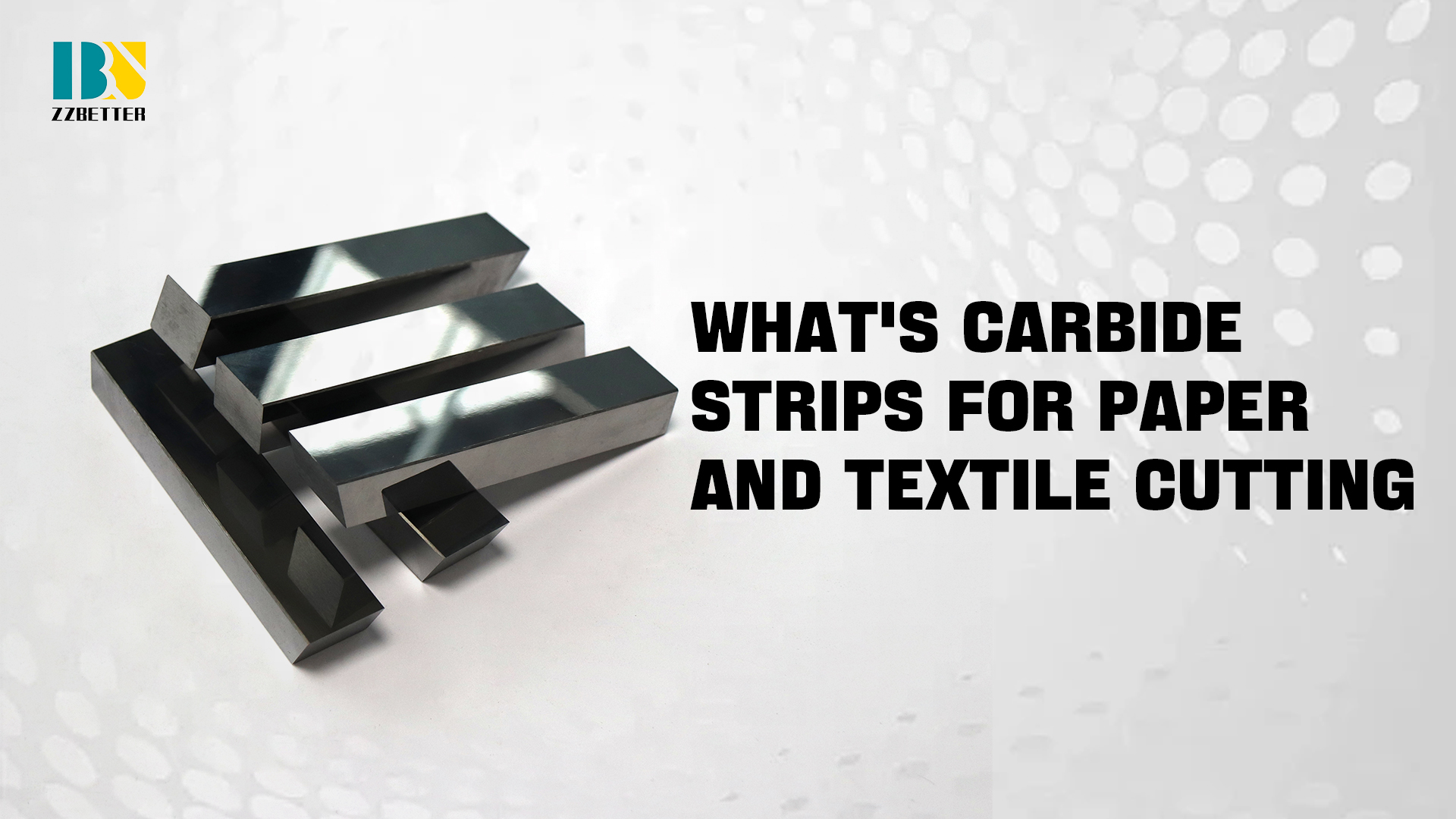
Ibice bya Carbide nibintu bikomeye kandi biramba. Bitewe n'uburemere bwabo no kwambara birwanya, iyi mirongo ikoreshwa muburyo butandukanye bwo gukata, harimo no gukora ibicuruzwa byimpapuro, nko guhuza ibitabo, gusohora no kwambara. Bashoboye guca mu bikoresho bitandukanye neza kandi neza.
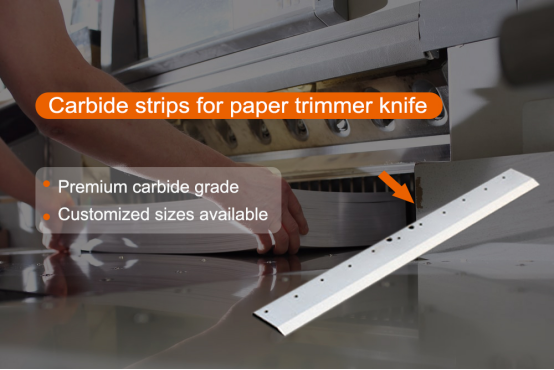
** Gusaba:
Imirongo ya Carbide ikoreshwa muburyo butandukanye bwimashini zo guca porogaramu mu nganda zitandukanye. Hano hari ubwoko bwihariye bwimashini zikoresha karbide:
Imashini zikata Rotary: Izi mashini zisanzwe zikoreshwa mubikorwa byimyenda nimpapuro mugukata ibikoresho. Imirongo ya karbide itanga impande zityaye, ziramba kugirango zigabanuke neza.
Gukata Shear: Izi mashini zikoresha imirongo ya karbide kugirango ikore ibikorwa byo gukata ubwoya, nibyiza byo guca ibice byimyenda cyangwa impapuro.
Ibitonyanga: Imashini zogosha zikoresha imirongo ya karbide kugirango ugabanye imizingo yagutse yibikoresho mubice bigufi, bikunze gukoreshwa haba mu mpapuro no gutunganya imyenda.
Imashini zipfa gupfa: Izi mashini akenshi zishingiye kumirongo ya karbide kugirango ikore imiterere nubushushanyo bwuzuye mubikoresho bitandukanye, harimo impapuro nigitambara.
Gukata Guillotine: Utwo dukata turashobora gukoresha imirongo ya karbide kugirango igabanuke neza neza mu mpapuro nini y'ibikoresho, ikemeza impande zose zisukuye, nk'impapuro.
Imashini zimurika: Rimwe na rimwe, imirongo ya karbide ikoreshwa mu mashini zangiza ibikoresho, zitanga umurongo ukenewe kugira ngo ugabanye ibikoresho birenze.
Imashini zipakira: Izi mashini zirashobora gukoresha imirongo ya karbide kugirango igabanye ibikoresho bipakira neza mugihe cyo gupakira.
** Ibyiza
Gukoresha imirongo ya karbide mugukata bitanga inyungu nyinshi kurenza ibindi bikoresho, nkibyuma cyangwa HSS (ibyuma byihuta). Dore inyungu z'ingenzi:
Kuramba: Carbide imirongo iringaniye irakomeye cyane kuruta ibyuma, bivuze ko barwanya kwambara no kurira neza cyane. Kuramba bisobanura guhindura ibikoresho bike no kugabanya igihe. Nta kugoreka na nyuma yo kongera gukarishya kubwiza buhebuje.
Kugumana ubukana: Carbide ikomeza inkombe yayo ikarishye kurenza ibindi bikoresho, ikarinda imirongo ishushanyije iterwa no gukata ku nkombe, bikaviramo gukata neza no gukara cyane.
Icyitonderwa: Carbide kare kare yakozwe muburyo bwo kwihanganira byinshi, byemeza kugabanuka guhoraho kandi neza, nibyingenzi mubisabwa bisaba neza.
Ubushyuhe bwo Kurwanya: Carbide irashobora kwihanganira ubushyuhe bwo hejuru idatakaje ubukana bwayo, bigatuma ikwirakwira mu buryo bwihuse bwo gukata aho kubyara ubushyuhe biteye impungenge.
Kugabanya Ubuvanganzo: Ubuso bworoshye bwibice bya karbide bigabanya ubukana mugihe cyo gukata, biganisha ku gukoresha ingufu nke no kunoza imikorere.
Guhinduranya: Imirongo ya Carbide irashobora gukoreshwa muburyo butandukanye bwo gusaba, kuva imyenda kugeza impapuro na plastiki, bigatuma bahitamo byinshi mubikorwa bitandukanye.
Kunoza Ubuso Bwuzuye Kurangiza: Gukarishye no gutuza kumurongo wa karbide bigira uruhare muburyo bwiza bwo kurangiza kubikoresho byaciwe, bikazamura ubwiza bwibicuruzwa byanyuma. Gukata impapuro, dukeneye burr-yubusa, nziza cyane yo gukata. Icyuma cya tungsten carbide gikozwe muri tungsten karbide imirongo yambaye ubusa ni amahitamo meza.
** Ingano
Ingano ya karbide iringaniye ikoreshwa mu mpapuro no gukata imyenda irashobora gutandukana bitewe na porogaramu yihariye n'ubwoko bw'imashini ikoreshwa. Ariko, dore bimwe mubisanzwe:
Uburebure: Mubusanzwe buri hagati ya mm 200 na mm 2700 (hafi santimetero 8 kugeza kuri 106).
ZZbetter irashobora gukora karbide ibice byambaye ubusa na tungsten carbide guillotine icyuma gifite uburebure bwa 2700mm, nuburebure ntarengwa muriki gihe.
Ubugari: hafi mm 10 kugeza kuri mm 50 (hafi 0.4 kugeza kuri santimetero 2), ariko ibi birashobora gutandukana ukurikije ibisabwa byo gukata.
Ubunini: Ubunini bwimigozi ya karbide mubusanzwe bugwa hagati ya mm 1 na mm 5 (hafi santimetero 0,04 kugeza kuri santimetero 0.2), bigatanga ubukana bukenewe bwo guca imirimo.
Ingano yihariye: ZZbetter itanga ingano yihariye kugirango ihuze ibikenewe byihariye, yemerera ibisubizo byateganijwe muburyo butandukanye bwo gukata.





